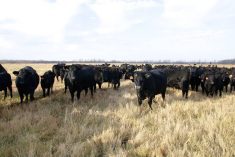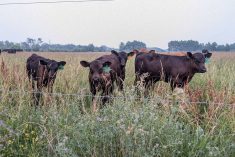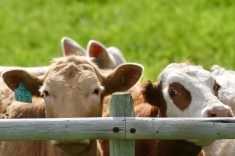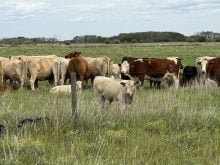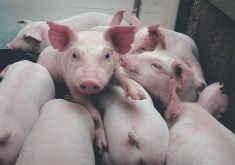Unprecedented rainfall over two weekends has turned Alberta rivers into torrents of water that drag away trees and property and flood homes.
Those living along the swollen rivers say this is the worst they have seen.
“They’re saying this is a 200 year flood,” said Kim Nielson, rancher and agriculture fieldman with Clearwater County in west-central Alberta.
The region escaped the rainfall of the June 10 weekend but starting June 17, up to 150 millimetres of rain pelted down in less than two days.
Damage in the area is being assessed by helicopter as rescuers search for stranded people and livestock.
Read Also
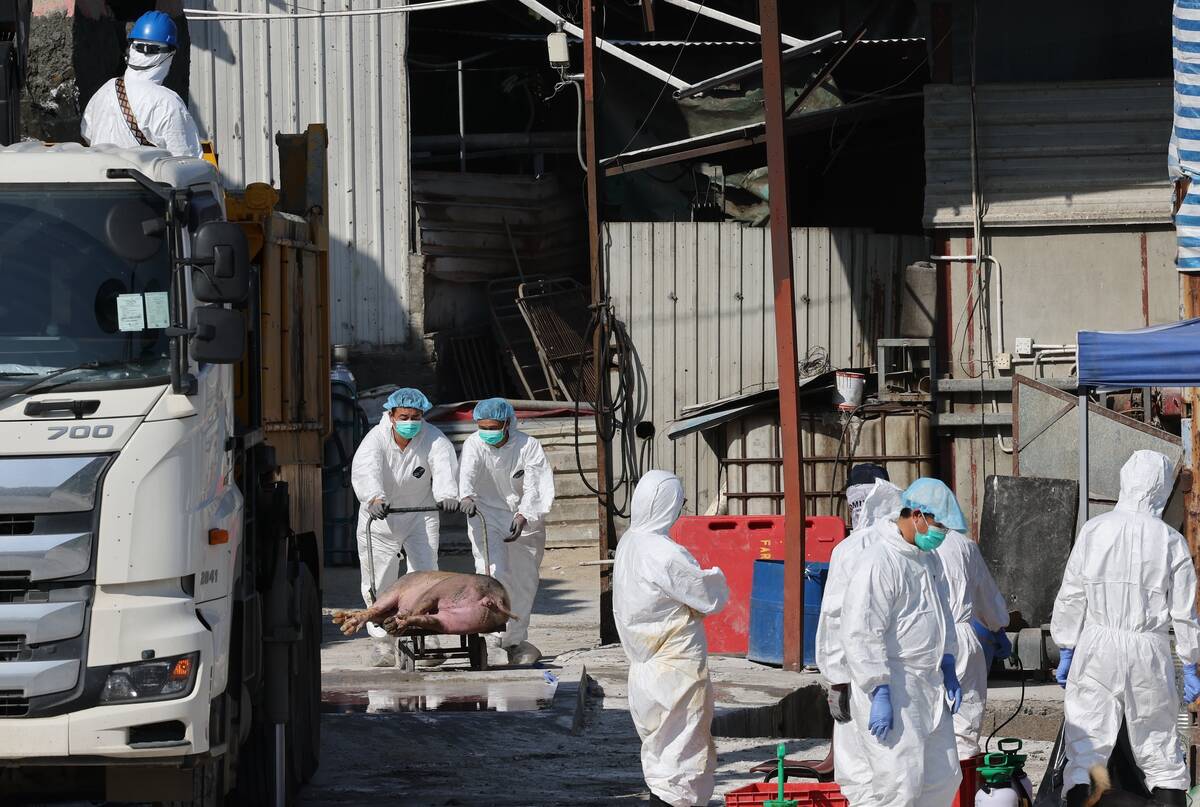
Mixed results on new African swine fever vaccine
The new African swine fever vaccine still has issues, but also gave researchers insight into how virus strain impacts protection against the deadly pig disease.
Alvin and Ann Kumlin live on the banks of Jumping Pound Creek north of Cochrane. Judging by family pictures, this appears to be the worst flood to hit the ranch built in 1885. The Kumlins have been pumping water around the clock to save their basement from flooding since the rain started June 17.
“We went to bed (Friday night) and could hear the roar and at 5:30 a.m. there was nothing but water on the west side,” Ann Kumlin said.
“The creek is full of silt and sand and beautiful big trees are going by that have been ripped out by the roots.”
Their cattle are safe but local roads have been flooded, and fences and large tire feeders were swept away.
Joe Zink’s family ranches on the western edge of Calgary where there is a dull roar in the background as the normally quiet Elbow River surges by carrying silt debris.
Culverts and local roads have been washed out and irrigation equipment was left mangled in the fields. The first weekend the ranch received about 200 mm of rain and last weekend another 150 mm fell. He estimated this episode is probably worse than the 1995 floods, which were considered the worst in a century.
“The 1995 flood was all river water but this water was from the sky,” Zink said. “No more rain, thank you.”
The basements of all four houses on the property are flooded, so there is no heat or hot water. Water from the taps is running yellow so everyone is using bottled water.
Most of the damage has been to the environment and the family was able to move about 200 cattle the week before when the first storms began.
“They survived better than the humans,” he said.
Farther south in irrigation country, the brunt of the rainfall occurred the week before.
It was welcome because the region was on the verge of a serious drought, said David Hill of the Alberta Irrigation Projects Association.
There has been some localized flooding from the two weeks of rain and irrigation reservoirs are topped up.
“If we get a little heat, things are really going to jump up and grow,” he said.
The ground is saturated now, but for some areas it was so dry the soil soaked up whatever nature sent down. The last big rains for the area were in June 2002 and the land had not fully recovered from drought.
“There are no problems with supply now,” Hill said.
Alberta Environment reported as of June 20 rainfall for the weekend ranged from 125 to 175 mm in the Jumping Pound region northwest of Calgary. Up to 50 mm fell in the Oldman River basin while the Highwood River region received up to 95 mm, Elbow River basin up to 130 mm and Red Deer River basin up to 160 mm.
At press time, flood warnings were in effect for the Red Deer, Bow, Elbow and North Saskatchewan Rivers and tributaries.
The province has promised $55 million in disaster aid covering damage for homeowners, tenants and small businesses in cases where insurance is not available.




